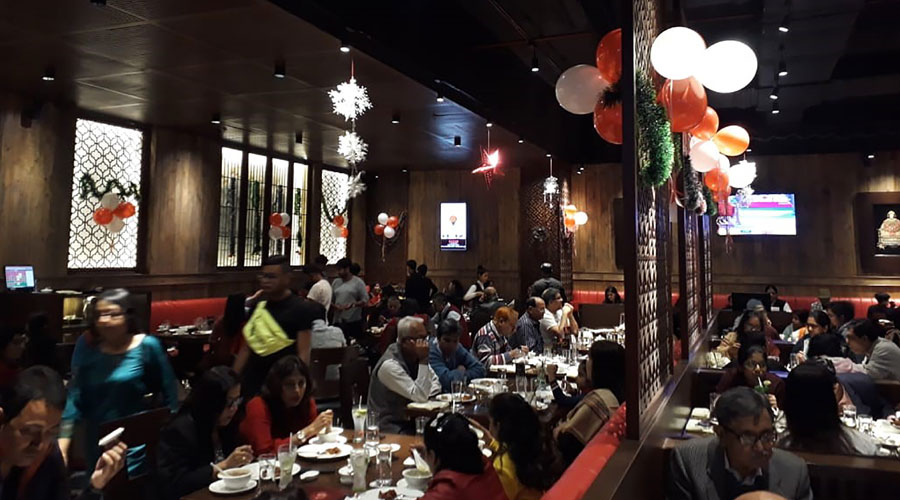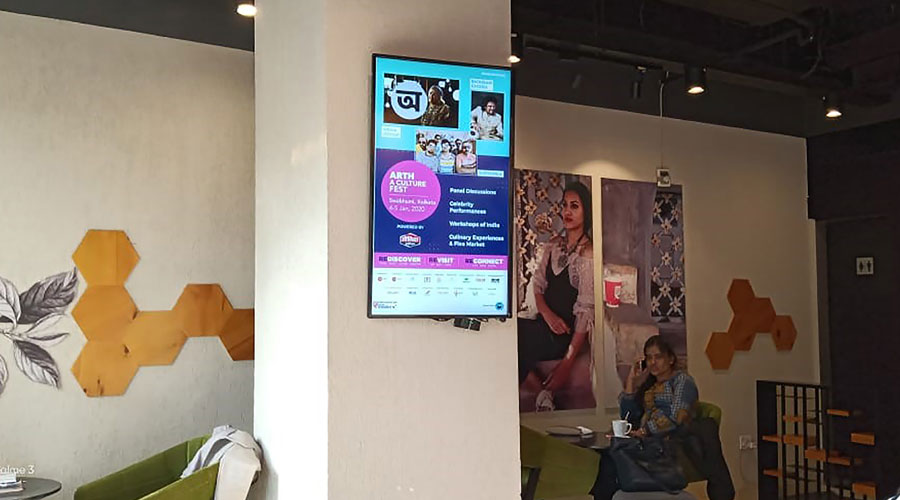Enkon OOH launches pDOOH network in metro cities
By Ria Banerjee - January 13, 2020
Around 600 programmatic digital out of home screens are seen to be playing daily in approx. 200 cafes, 100 fine dining restaurants and lounge bars across Delhi, Mumbai, Pune, Bangalore & Kolkata
 Kolkata based Enkon OOH installs a DOOH network in the leading cities. These programmatic enabled DOOH screens have been strategically placed in close to 200 cafes, 100 fine dining restaurants and lounge bars across Delhi, Mumbai, Pune, Bangalore and Kolkata. These real-time screens are also being sold at hypermarkets and supermarkets in all these regions. Considering the increasing bandwidth of pDOOH screens every month, the OOH firm is planning to touch some 2000 screens expanding to various touch points where the next target cities are Hyderabad & Chennai. By and large, the OOH firm shall be catering to 500 touchpoints targeting some 20 million footfalls.
Kolkata based Enkon OOH installs a DOOH network in the leading cities. These programmatic enabled DOOH screens have been strategically placed in close to 200 cafes, 100 fine dining restaurants and lounge bars across Delhi, Mumbai, Pune, Bangalore and Kolkata. These real-time screens are also being sold at hypermarkets and supermarkets in all these regions. Considering the increasing bandwidth of pDOOH screens every month, the OOH firm is planning to touch some 2000 screens expanding to various touch points where the next target cities are Hyderabad & Chennai. By and large, the OOH firm shall be catering to 500 touchpoints targeting some 20 million footfalls.
This asset enables the digital media buyers to define the audience profile, the ambiance in which the ads should play and other prerequisites that accompany with the campaign, such as time, weather forecasts etc.
Brands from sectors such as leisure, travel, industry events, OTT, film launches, lifestyle products, banks are the advertisers for the new format.
 Speaking about the advantages of DOOH over traditional OOH advertising, Aninda Banerjee, MD, Enkon OOH shares, “Programmatic DOOH solutions along with AI and growth of influence on social media are challenging the traditional Out-of-Home advertising in the recent years. DOOH has created its dominance over the traditional offline out-of-home advertising. Advantages of technologies are known to all and DOOH offers constant traffic, better visibility and many more attention-grabbing elements through online display advertising coupled with enhanced creativity and right kind of targets.
Speaking about the advantages of DOOH over traditional OOH advertising, Aninda Banerjee, MD, Enkon OOH shares, “Programmatic DOOH solutions along with AI and growth of influence on social media are challenging the traditional Out-of-Home advertising in the recent years. DOOH has created its dominance over the traditional offline out-of-home advertising. Advantages of technologies are known to all and DOOH offers constant traffic, better visibility and many more attention-grabbing elements through online display advertising coupled with enhanced creativity and right kind of targets.
"Traditional OOH advertising has become a challenge and requires a lot of human-efforts for implementation which is not the case with DOOH. In India traditional OOH is unorganised and the local municipal bodies are trying to streamline it. In many cities traditional OOH is becoming unauthorised due to changes in policies. Traditional OOH has influence of unauthorised installations. There is severe lack of uniform policies in India. DOOH allows to monitor, track, modify, manage, and display content at your own discretion and in real-time as well. DOOH advertising is aptly suitable as such media satisfies these demands with greater effectiveness and efficiency. And it is not possible with traditional OOH offline advertising", he adds.

